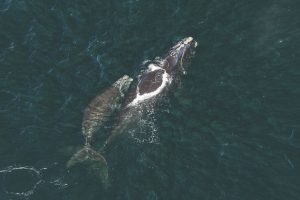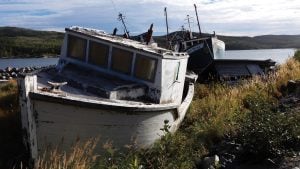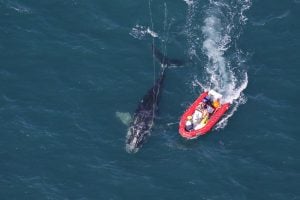
Wildlife
Punctuation’s mark: Can we save the critically endangered North Atlantic right whale?
After a series of mass deaths in recent years, what can we do?
- 4110 words
- 17 minutes
This article is over 5 years old and may contain outdated information.
Wildlife

Shorter ropes, gear tags and mandatory reporting of lost or abandoned gear: these are just some of the new regulations crab fishers in Atlantic Canada will face when the 2018 season opens in the spring as part of a bid by the federal government to prevent further deaths of endangered North Atlantic right whales.
A total of 12 whales died in Canadian waters last summer — an unprecedented number and a major blow for the critically endangered species, whose estimated global population is now 450 individuals. Necropsies on six carcasses confirmed that the whales had died from blunt force trauma, most likely as a result of ship strikes, and entanglement in fishing gear.
Fisheries and Oceans Minister Dominic LeBlanc announced the new regulations at a press conference in Moncton, N.B., Tuesday in order to give the crab fishing industry time to prepare.
“There should be no doubt these measures are in place immediately, and we are expecting 100 per cent compliance,” he said.
Crab fishers will now be required to add weights to trap ropes to ensure no rope is left floating on the surface, and to use no more than 3.7 metres of rope to connect primary and secondary buoys. Ropes and buoys must also be marked with a colour and sequential number corresponding to the sector in which a fisher is licensed to operate.
“Entangled whales can carry the entangled gear in some cases hundreds of kilometres away from the area where they first came into contact with the gear,” said LeBlanc, “so any measure that will help us trace the location of where the initial contact happened is an important measure.”
All crab fishers will be required to report lost or abandoned gear, including the GPS coordinates of the last place the gear was seen. LeBlanc said Coast Guard and conservation personnel reported “a significant amount” of abandoned gear still in the waters of the Gulf of St. Lawrence weeks after the 2017 season had closed. “We want to take every possible step to … have the industry accept their primary responsibility to retrieve that gear.”
LeBlanc said he will be announcing more measures to protect iconic whales on both the Atlantic and Pacific coasts in the coming weeks and months, adding that DFO and Transport Canada would consider imposing a speed limit on ships in the Gulf, but that any decision would “be based on scientific advice in terms of the presence of the whales, the appropriate zone and the specific speed limit.”
A temporary speed limit for large vessels in the Gulf, implemented in August, was lifted earlier this month when it became clear that the whales had migrated out of the area.
North Atlantic right whales winter off the coast of Florida and Georgia and typically begin to have their calves in December, but as of last week, researchers in the southeastern U.S. had yet to spot a single newborn, sparking concerns for a low birth year.
Are you passionate about Canadian geography?
You can support Canadian Geographic in 3 ways:

Wildlife
After a series of mass deaths in recent years, what can we do?

Environment
The planet is in the midst of drastic biodiversity loss that some experts think may be the next great species die-off. How did we get here and what can be done about it?

People & Culture
A moratorium on cod fishing that was supposed to last two years has now lasted 30. What will it take to rebuild cod stocks — and a way of life?

Wildlife
The death and entanglement of 17 of the endangered mammals last summer spurred an unprecedented effort to make the Gulf of St. Lawrence safer — but will it be enough?